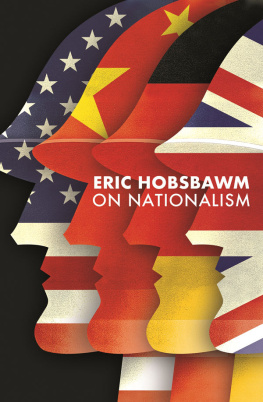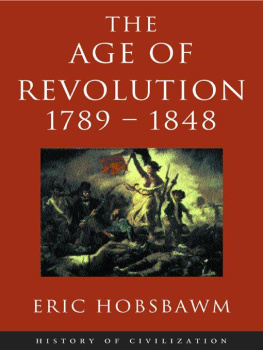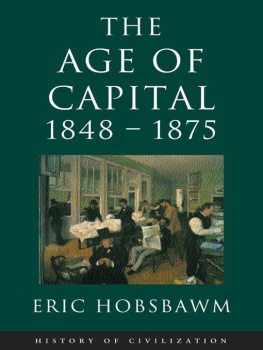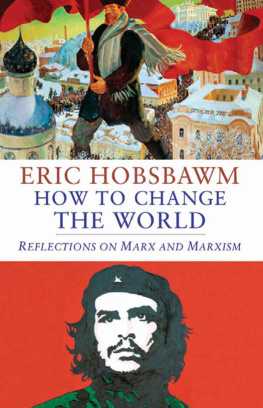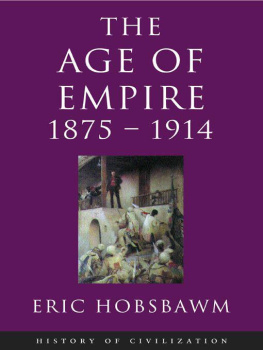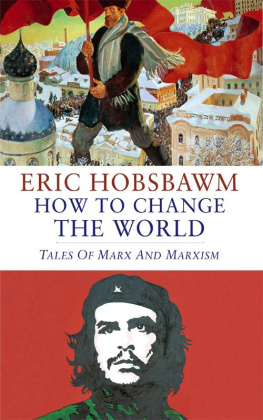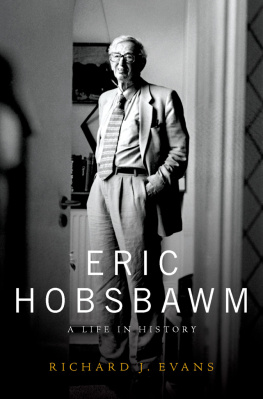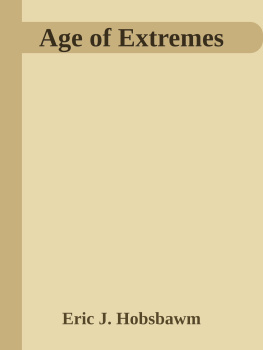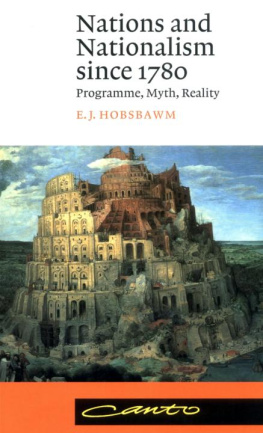Eric Hobsbawm - On Nationalism
Here you can read online Eric Hobsbawm - On Nationalism full text of the book (entire story) in english for free. Download pdf and epub, get meaning, cover and reviews about this ebook. year: 2021, publisher: Little, Brown Book Group, genre: Politics. Description of the work, (preface) as well as reviews are available. Best literature library LitArk.com created for fans of good reading and offers a wide selection of genres:
Romance novel
Science fiction
Adventure
Detective
Science
History
Home and family
Prose
Art
Politics
Computer
Non-fiction
Religion
Business
Children
Humor
Choose a favorite category and find really read worthwhile books. Enjoy immersion in the world of imagination, feel the emotions of the characters or learn something new for yourself, make an fascinating discovery.
- Book:On Nationalism
- Author:
- Publisher:Little, Brown Book Group
- Genre:
- Year:2021
- Rating:3 / 5
- Favourites:Add to favourites
- Your mark:
- 60
- 1
- 2
- 3
- 4
- 5
On Nationalism: summary, description and annotation
We offer to read an annotation, description, summary or preface (depends on what the author of the book "On Nationalism" wrote himself). If you haven't found the necessary information about the book — write in the comments, we will try to find it.
On Nationalism — read online for free the complete book (whole text) full work
Below is the text of the book, divided by pages. System saving the place of the last page read, allows you to conveniently read the book "On Nationalism" online for free, without having to search again every time where you left off. Put a bookmark, and you can go to the page where you finished reading at any time.
Font size:
Interval:
Bookmark:
Also by Eric Hobsbawm
The Age of Revolution 17891848
The Age of Capital 18481875
The Age of Empire 18751914
The Age of Extremes 19141991
Labouring Men
Industry and Empire
Bandits
Revolutionaries
Worlds of Labour
Nations and Nationalism Since 1780
On History
Uncommon People
The New Century
Globalisation, Democracy and Terrorism
How to Change the World
Fractured Times
Viva La Revolucin (edited by Leslie Bethell)
Interesting Times
ERIC HOBSBAWM
Edited by Donald Sassoon with an introduction

LITTLE, BROWN
First published in Great Britain in 2021 by Little, Brown
Copyright 2021 The Trustees of the Eric Hobsbawm Literary Estate
The moral right of the author has been asserted
Introduction Copyright 2021 Donald Sassoon
All rights reserved.
No part of this publication may be reproduced, stored in a retrieval system, or transmitted, in any form or by any means, without the prior permission in writing of the publisher, nor be otherwise circulated in any form of binding or cover other than that in which it is published and without a similar condition including this condition being imposed on the subsequent purchaser.
A CIP catalogue record for this book
is available from the British Library.
ISBN 978-1-4087-1156-9
Little, Brown
An imprint of
Little, Brown Book Group
Carmelite House
50 Victoria Embankment
London EC4Y 0DZ
An Hachette UK Company
www.hachette.co.uk
www.littlebrown.co.uk
Eric Hobsbawm did not like nationalism. As he wrote in 1988 in a letter to a left-wing nationalist historian, I remain in the curious position of disliking, distrusting, disapproving and fearing nationalism wherever it exists, perhaps even more than in the 1970s, but recognising its enormous force, which must be harnessed for progress if possible. And sometimes it is possible. We cannot let the right have the monopoly of the flag. Some things can be achieved by mobilising nationalist feelings... However, I cannot be a nationalist and neither, in theory, can any Marxist.
His anti-nationalism is not surprising. He was a Jew opposed to Zionism. He was British but born in Egypt in the year of the Russian Revolution. His grandfather was Polish. His mother was Viennese. His father was born in England. His parents married in Switzerland. His wife, Marlene, was born in Vienna and brought up in Manchester. He grew up in Vienna and Berlin, and was a boy in Germany when the Nazis took over an experience that left an enduring impression. He wrote in his autobiography that Berlin made him a lifelong Marxist and communist, a political project which, he acknowledged, had utterly failed. The dream of the October Revolution, he wrote, is still there somewhere inside me... I have abandoned, nay rejected it, but it has not been obliterated. It was not a happy childhood: his father died when he was twelve and his mother when he was fourteen.
It is almost as if the term rootless cosmopolitan had been coined for him were it not for the fact that he was so very English in his mannerisms, albeit an Englishman with a command of five languages. With this kind of background it is not entirely unexpected that he should have looked at conventional wisdom (including conventional historiography) with a good deal of scepticism.
In this collection of Hobsbawms writing on nationalism, we see some of the critical historical insights he brings to bear on this contentious subject, which is more than ever relevant as we stand on the doorstep of an age when the internet and the globalization of capital threaten to blow away many national boundaries while, partly as a reaction, nationalism seems to reemerge with renewed strength.
Historians, he explained, have a responsibility to historical facts in general, and for criticizing the politico-ideological abuse of history in particular. He possessed, if I may use the expression, a powerful bullshit detector an essential tool in a profession where a critical mind is as important as wisdom and a wide knowledge. Hobsbawm had all of these.
There is little doubt that he took some pleasure (I can still see his mischievous smile) in pointing out that stuff peddled as ancient is actually quite recent: whether it is the festival of the Jocs Floral (Floral Games) re-established in Catalonia in 1859, with the theme of Patria, Fides, Amor (Country, Faith, Love), at a time when Catalan nationalism was not concerned with the linguistic question, or its Welsh equivalent, the eisteddfodau, revived in the same year while Welsh was not standardized until the twentieth century (Are All Tongues Equal? in this collection).
History challenges beliefs to an extent unequalled in other disciplines. To argue that the earth is not in the middle of the universe and that the sun does not go round it, or that our ancestors were apes, may be destabilizing for Abrahamic religions since the science appears to invalidate the accepted stories concerning the Creation, but, in our times, most religions have learned to put up with the science. In any case, for most (not all) people, whether the sun goes round the earth or the other way round is of no great importance. Life goes on. Ones identity is not threatened. But to be told, in the modern age, that is to say since the nineteenth century, that Italy or Germany are recently invented nations; that Clovis, the first Christian King of France, was born in Belgium (which did not exist then) and did not speak French, and nor did Charlemagne; that Pakistan was invented in the 1930s (Hobsbawm mentions with irony, and more than once, a popular book called Five Thousand Years of Pakistan written by the British archaeologist Mortimer Wheeler) may well be upsetting for those who have been taught such things at school and for whom a national identity is important, and, nowadays, identities, and not only national identities, are more important than ever.
He is equally scathing about Zionists who skate lightly over the last 1800 years to get back to the last fighting inhabitants of Palestine. People can identify as Jews even though they do not live in the territory, do not speak the same language, do not follow the same religious rituals (or any), do not have the same historical background or the same culture, etc. For him, no serious historian of nations and nationalism can be a committed political nationalist. And he doubted, for instance, that a Zionist could write a genuinely serious history of the Jews. Nationalists believe nations have been around since time immemorial. The business of historians is to refute such assertions.
The best historians have always been aware of the dangers of myth-making. Thucydides, in the first chapter of his History of the Peloponnesian War, wrote that, at a time of turmoil, Old stories of occurrences handed down by tradition, but scantily confirmed by experience, suddenly ceased to be incredible.
Hobsbawm too was perfectly aware of the power of history. He was fond of saying that there was a time when he thought, consolingly, that historians, unlike architects and civil engineers,
He would then add: Nations without a past are contradictions in terms, for the past legitimizes. What makes a nation is the past, what justifies one nation against others is the past, and historians are the people who produce it. So my profession, which has always been mixed up in politics, becomes an essential component of nationalism. More so even than the ethnographers, philologists and other suppliers of ethnic and national services who have usually also been mobilized.
Next pageFont size:
Interval:
Bookmark:
Similar books «On Nationalism»
Look at similar books to On Nationalism. We have selected literature similar in name and meaning in the hope of providing readers with more options to find new, interesting, not yet read works.
Discussion, reviews of the book On Nationalism and just readers' own opinions. Leave your comments, write what you think about the work, its meaning or the main characters. Specify what exactly you liked and what you didn't like, and why you think so.

